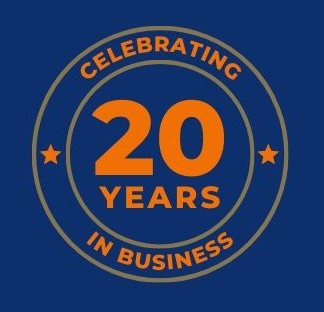From Investment Banking to Corporate Development / Corporate Finance
- 13 Sep 2018
This article is for the M&A analysts/associates in my network considering a move out of Investment Banking into Industry, to address the concern that Corporate Finance / Corporate Development is a lesser career option in terms of:
- the work itself
- long-term career opportunities
- financial benefits
I want to reassure you that corporate development and corporate finance careers are greatly underestimated. The roles themselves are arguably more interesting and can be very lucrative at the more senior levels - I’ll get to this later.
Firstly I want to talk about the Recruitment Process: the recruitment process for an in-house M&A role is very similar to interviewing for an investment bank.
Step One: A 30-minute meet & greet with the Hiring Manager. You will be asked to walk through your resume. You might also be quizzed with basic technical questions.
Step Two: An hour face-to-face interview to assess your technical knowledge; normally with the Hiring Manager and another member of the business. You will be asked questions on the following topics:
· Accounting
· Industry
· Corporate Finance
· Valuations
· Financial Models
· M&A / IPO / LBO
· Brain teasers / mental math
· Competency questions
Step Three: An hour case study to assess your problem solving & financial modelling abilities in a time pressured situation. This could be building an M&A model or analysing a set of data on a potential deal and making a recommendation to the business.
Step Four: A thirty-minute meeting with other members of the team to assess your social skills & culture-fit. You will be questioned on your long-term career goals, views on the business and what you look for in a team.
The Role Itself: Corporate Development
‘Corporate Development (Corp Dev) is the group at a corporation responsible for strategic decisions to grow and restructure the business, establish strategic partnerships, and/or achieve organisational excellence.’
Most people find corporate development / corporate finance significantly better than investment banking in terms of both the work itself and the lifestyle. The typical work week is forty to fifty hours (which might go up to sixty during times of deal activity).
Corporate Development teams are often smaller, and the hierarchy is much flatter than in a bank so you’ll be given a lot of autonomy and responsibility to manage your own workload. But the best part is that everything has a purpose! If you're an analyst or associate in an investment bank, you'll be familiar with pitching. Most of your working life will be spent putting together pitch decks or pulling all-nighters before the pitch is presented to clients. Ultimately, the Managing Director making the pitch may flip a few slides, but it may not even get opened in front of the client!
You’ll be pleased to hear there is no pitching in Corporate Development and so there's less work which leads to nothing.
It’s also a lot more analytical; you’ll be closely connected to the Business Units, analysing revenue and cost synergies in detail. You will get to discuss your findings with experts in the business, which is a very rewarding part of the role.
Time split in Corporate Development:
About 80% of time is spent on deal activity. This can include: financial modelling, deal analysis, writing investment decks, interviewing stakeholders and presenting deals to the business.
The deal-making appetite of a corporate depends on the management-style and company culture e.g., a corporate going through a cost-cutting initiative might result in a risk-averse culture, therefore deal flow will be slow. Whereas, a business going through a high-growth phase will be more willing to take risks and therefore deal flow will be strong. Sometimes deal activity slows down when the business is focused on other company-wide initiatives.
Roughly 20% of the time will be spent on strategy; this could involve writing briefing notes for the CEO or CFO of the company, competitor analysis and other strategic work.
Are there any down-sides of a corporate role?
Everything has their pro’s and con’s. The internal-politics of a corporate can be frustrating, when a Business Unit wants to do a deal but the Finance Division doesn’t, a lot of time will be invested into winning-approval. For some however, this challenge makes the role even more interesting.
Salary:
The base salary matches banking, but you won’t get as big a bonus. Most corporates offer a 15-20% bonus made-up of personal & company KPI’s. The big bonuses in banking help compensate for the long hours, night shifts and weekend work. In corporate development the work/life balance is generally better (unless you're on a deal) and so you'll get paid less. It comes down to whether you value free time and flexibility and how much this is worth to you in monetary terms.
Career Opportunities:
Being part of an in-house team means the business will invest heavily in both your personal and career development e.g., sponsoring an MBA programme and external learning courses. To move up the ranks, you must be proactive, make recommendations and execute successful deals.
But moving to a corporate doesn’t have to be a life-time decision. You can always move back to banking later! Banks will appreciate the network you’ve built and the new perspectives you’ve gained. You can also move across to different corporates; into venture capital, or private equity.
What next? If you see a life after banking but you’d like to get some expert advice then please get in touch! I’m happy to answer any questions and can be reached on my email Fionnuala.mcshane@tomexecutive.com or 8270 0562

